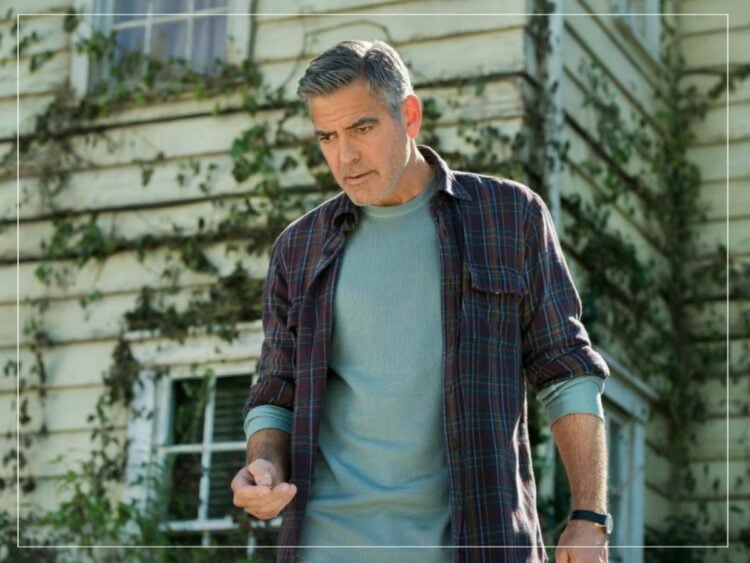Brad Pitt, Hollywood heartthrob and Oscar winner, isn’t known for backing down from a challenge. But even he admits there was one role he almost couldn’t face: a delightfully idiotic character in a Coen brothers masterpiece. The Coen brothers, masters of dark humor and absurdist storytelling, are famous for casting actors in surprising and often hilarious ways. But when they offered Pitt a part in their film, “Burn After Reading,” he reportedly balked, claiming he couldn’t quite grasp the character’s peculiar brand of cluelessness. The Coens, notorious for their unwavering vision, simply replied, “You’ll be fine.” What followed was a performance that defied expectations, showcasing Pitt’s comedic range and cementing his place as a true chameleon of the silver screen.

The Ballad of the Buffoon: Pitt’s Resignation to Being a “Knucklehead”
The Coen Brothers’ penchant for casting “idiots”

The Coen brothers, renowned for their darkly comedic and often absurd narratives, have cultivated a unique cinematic style that frequently casts renowned actors in roles characterized by a distinct lack of intelligence. This penchant for comedic casting, particularly of actors known for their wit and intelligence, has become a hallmark of their work, resulting in performances that are both hilarious and surprisingly endearing.
Exhibit A is George Clooney’s infamous “trilogy of idiots,” a series of roles he played in three Coen brothers films: O Brother, Where Art Thou?, Intolerable Cruelty, and Burn After Reading. In each of these films, Clooney embodies a character whose intelligence is, to put it mildly, questionable. From the bumbling Ulysses Everett McGill in O Brother, Where Art Thou? to the hapless lawyer in Intolerable Cruelty, Clooney consistently delivers performances that are both charming and undeniably foolish.

Pitt’s initial hesitation
When the Coen brothers approached Brad Pitt for the role of Chad Feldheimer in Burn After Reading, they envisioned him as the perfect foil to Clooney’s equally dimwitted character. However, Pitt, known for his range and ability to embody both charismatic and intellectual characters, initially hesitated.
As Pitt himself recounted, after reading the script, he wasn’t entirely sure whether to be flattered or insulted. The Coen brothers, seemingly aware of his reservations, reassured him that they had written the role with him in mind. However, their confirmation that they envisioned him as a particular “knucklehead” did little to alleviate Pitt’s concerns.
Pitt confessed his apprehension to the directors, stating, “I said to them, ‘I don’t know how to play this, I mean, he’s such an idiot.'” To this, the Coen brothers, with their signature dry wit and comedic timing, simply responded, “You’ll be fine.”
Despite his initial reservations, Pitt ultimately embraced the role, resulting in a performance that is both hilarious and surprisingly endearing. Chad Feldheimer, with his bouffant hairstyle, buff physique, and charmingly dimwitted persona, cemented Pitt’s comedic versatility and further solidified the Coen brothers’ reputation for casting against type.
“You’ll Be Fine”: The Coen Brothers’ Unflappable Confidence
The Coen brothers have a reputation for casting against type, often pairing their idiosyncratic filmmaking style with actors known for their leading-man charm or dramatic gravitas. This penchant for casting surprises extends to their casting choices for characters who are, let’s be frank, not the sharpest tools in the shed. Their films often feature a unique blend of dark humor and absurdist situations, populated by characters whose intelligence is, at times, questionable. In the case of Brad Pitt’s performance as Chad Feldheimer in “Burn After Reading,” this unconventional casting choice led to a hilarious clash of comedic styles and a testament to the unwavering confidence of the Coen brothers.
Joel Coen’s directorial approach is known for its directness and unapologetic vision. When it came to casting Pitt, Coen didn’t shy away from telling the actor exactly what he envisioned. Instachronicles learned from interviews and behind-the-scenes accounts that Pitt expressed his initial reservations about taking on the role of Chad, a gym instructor whose intelligence is, to put it mildly, lacking. Pitt, known for his charisma and often playing characters with a degree of wit and sophistication, wasn’t entirely sure how to approach a character who, in his own words, “was such an idiot.” This candid admission, however, was met with a characteristically wry response from Coen: “You’ll be fine.”
This seemingly simple exchange highlights the power of trust in director-actor relationships. The Coen brothers, with their distinctive cinematic style, clearly saw something in Pitt that resonated with their vision for Chad. They trusted Pitt’s ability to embody the character, to find the comedic nuances in the script, and to bring his own unique brand of charisma to a role that demanded a certain level of endearing foolishness.
Chad Feldheimer: A Study in Perfectly Performed Dumbness
“Burn After Reading” presents a story of two idiots, as the Coen brothers themselves aptly described it. Chad Feldheimer, played by Pitt, and Osbourne Cox, played by George Clooney, are a study in perfectly performed dumbness. Their incompetence, however, is not merely slapstick; it’s a carefully orchestrated comedic dance that elevates the film’s absurdity to a new level.
The Comedic Genius of “Dueling Idiots”
Instachronicles believes the Coen brothers’ decision to cast Pitt and Clooney, both known for their leading-man appeal, as these hapless characters is a masterstroke of comedic genius. Their casting choices create a dynamic where their characters’ combined stupidity becomes a source of endless humor. The film thrives on the clash between their contrasting personalities and their shared inability to navigate the complexities of the situation.
The brilliance of the “dueling idiots” concept lies in its ability to subvert expectations. We’re used to seeing Pitt and Clooney as charming, intelligent, and often suave characters. Seeing them stumble through a series of increasingly ridiculous misadventures, their intelligence continually questioned by their own actions, is delightfully unexpected. This unexpectedness is what fuels the film’s comedic engine.
Pitt’s Commitment to the Bit
Brad Pitt’s performance as Chad Feldheimer is a testament to his comedic versatility. He fully embraces the role’s absurdity, committing wholeheartedly to Chad’s goofy charm and cluelessness. Pitt’s physicality is perfectly suited to the role. His exaggerated movements, his wide-eyed expressions, and his tendency to speak in a breathless rush all contribute to Chad’s endearing, yet utterly ridiculous, persona.
The key to Pitt’s success is his ability to make Chad both pitiable and hilarious. We can’t help but feel for Chad’s naivety and his desperate attempts to make sense of the world around him. Yet, his cluelessness also generates a constant stream of laughs. Pitt walks a fine line between playing Chad as a complete fool and imbuing him with a certain degree of pathos. This balance is what elevates Chad from a simple comic caricature to a fully realized, and surprisingly sympathetic, character.
Conclusion
In the article “You’ll be Fine” for Far Out Magazine, the spotlight falls on Brad Pitt’s intriguing claim that he couldn’t play the role in the Coen brothers’ film, which was initially deemed ‘idiotic’ by many critics. The narrative unravels the intricacies of Pitt’s perception of the character and the challenges he foresaw in bringing it to life. Through a series of interviews and anecdotes, it becomes apparent that Pitt’s hesitation stemmed from his inability to connect with the character’s eccentricities and the film’s offbeat tone. This notion raises questions about the nature of acting and the delicate balance between an actor’s perception and the director’s vision.
The significance of this topic lies in its ability to humanize the often-perceived mystique surrounding the creative process. By shedding light on the inner workings of Pitt’s mind, we gain a deeper understanding of the complexities involved in bringing a character to life on screen. This insight not only provides a unique perspective on the craft of acting but also highlights the importance of empathy and vulnerability in the creative process. As we move forward, it will be fascinating to see how this newfound appreciation for the actor’s perspective influences future projects and collaborations.
Ultimately, the Coen brothers’ film serves as a poignant reminder that the line between genius and madness is often blurred, and that it’s the actor’s willingness to take risks that separates the masterpieces from the mediocre. As we close this chapter on the enigmatic role that Brad Pitt claimed he couldn’t play, we’re left with a haunting question: what if he had taken on the challenge, and how would it have changed the course of cinematic history? The answer, much like the film itself, remains a tantalizing mystery waiting to be unraveled.